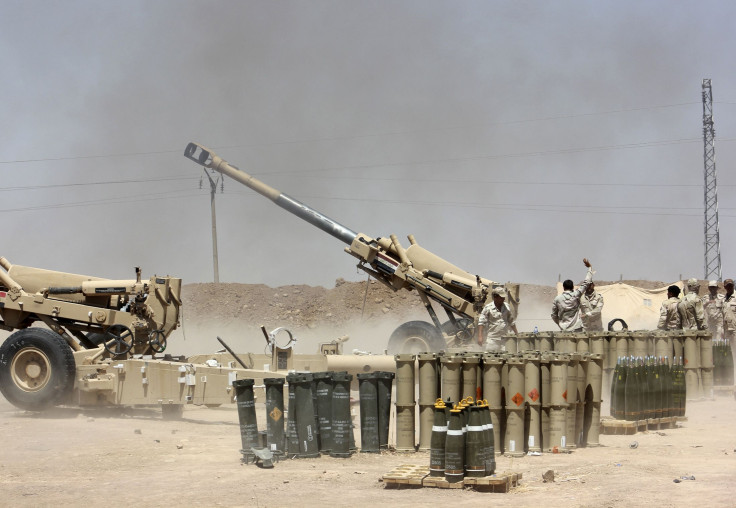ISIS Takes Control Of Rutba On Iraq's Western Border With Jordan

Sunni Iraqi militants from the Islamic State in Iraq and Syria, or ISIS, on Sunday took control of the western Iraqi city of Rutba, which lies 90 miles east of the Jordan border.
Rutba became the fourth town in two days to fall into ISIS control, after Rawah, Anah and Qaim, along with two border crossings, were captured by the extremist group Sunday. The fall of Rutba, which lies on the Iraq-Jordan border, is strategic because it means the group now controls most of the country's western border, which will allow ISIS to conveniently supply arms and ammunition from Iraq to help Syrian rebels fighting Bashar Assad's administration, Associated Press, or AP, reported. Rutba's capture follows an airstrike Sunday by Iraqi government forces on the northern city of Tikrit, which killed 40 militants.
"Up until now, we don't have a plan to retake any territory we lost. We are working on one still," a government official from Maliki’s administration reportedly told AP, adding: "Their objective is Baghdad, where we are working frantically to bolster our defences.”
Meanwhile, following Iraq's formal request last week to the U.S. for air strikes against ISIS militants, Ayatollah Ali Khamenei, the Supreme leader of Iran and a Shia cleric who has a firm grip on the country’s foreign policy, sought to dispel notions that Iraq was a victim of sectarian strife and warned the U.S. against interfering in the Iraq crisis.
“We strongly oppose the intervention of the U.S. and others in the domestic affairs of Iraq,” Khamenei said, according to AP, which cited IRNA, a state-run news agency, adding: “The main dispute in Iraq is between those who want Iraq to join the U.S. camp and those who seek an independent Iraq. The U.S. aims to bring its own blind followers to power.”
Meanwhile, U.S. President Barack Obama, in an interview with CBS on Sunday, reportedly warned that ISIS, which has nearly 10,000 fighters in Iraq and Syria, might destabilize the neighboring regions too, but added that his administration will not "play whack-a-mole and send U.S. troops ... wherever these organizations pop up," AP reported.
“It’s not the place for the United States to choose Iraq’s leaders,” Obama said, according to Bloomberg, adding: “It is clear, though, that only leaders that can govern with an inclusive agenda are going to be able to truly bring the Iraqi people together and help them through this crisis.”
© Copyright IBTimes 2024. All rights reserved.






















